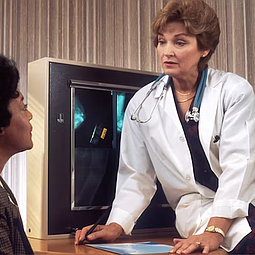COVID 19 News Update
August 21, 2023 at 4:13 p.m.
Do You Need to Continue to Get COVID-19 Vaccine Boosters?
How well a COVID-19 vaccine protects you depends on how the virus that causes COVID-19 changes and what variants the vaccine protects against. Your level of protection also depends on timing, such as when you last received a vaccination. Experts at the Mayo Clinic say that all adults age 50 older should talk to their healthcare team about how to stay up to date with COVID-19 vaccines.
Both the Pfizer-BioNTech and the Moderna COVID-19 vaccines use genetically engineered messenger RNA (mRNA). Coronaviruses have a spike-like structure on their surface called an S protein. COVID-19 mRNA vaccines give your cells instructions for how to make a harmless piece of an S protein. The Novavax is an adjuvanted vaccine and it includes only the proteins of a virus that best stimulate your immune system as well as harmless S proteins. It also has an ingredient called an adjuvant that helps boost the immune system response.
Over the last two years, the Biden-Harris Administration has effectively implemented the largest adult vaccination program in U.S. history, with more than 270 million people receiving at least one shot of a COVID-19 vaccine. The Administration also made lifesaving treatments widely available, with more than 15 million courses administered, saving countless lives. As of July 27, 2023, there have been 103,436,829 confirmed cases of COVID-19 with 1,127,152 deaths, reported to the WHO (World Health Organizations).
Ethical Questions Related to COVID-19
At the beginning of the COVID-19 pandemic, Dr. Anthony Fauci told the nation that we are all in this together. Unfortunately, that was now the entire case and public health officials are warning that the ethical dilemmas raised during the last few years will continue to linger. One area of ethical concern during the pandemic was the difference in infections, hospitalizations, mortality, and vaccination rates across racial and socioeconomic groups. It is clearly not enough to develop the right technical tools for diagnosis and treatment. Studies now show that there needs to be a greater appreciation of the social conditions that affect people's health.
“It's important to consider the ethical questions related to COVID because we almost certainly did some things well and fell short in other areas. Taking a clear, honest look at our decisions from the pandemic will help us better respond each time something similar arises in the future,” said Michael Rozier, S.J., a professor and department chair for health management and policy at Saint Louis University in Missouri.
 Michael Rozier, Department Chair - Health Management and Policy, St. Louis MO
Michael Rozier, Department Chair - Health Management and Policy, St. Louis MO
He has authored a paper examining ethical questions raised during the COVID-19 pandemic and what can be done to address specific ethical questions in the future. In the paper, Rozier and his colleagues surveyed areas where healthcare ethics questions arose during the COVID-19 pandemic, and discussed lessons that can be learned from those questions.
The ethical dilemmas were broken into four different categories: clinical, organizational, social and legal. For each of these different areas, Rozier and his colleagues examined problems that publicly rose to the forefront during the COVID-19 pandemic. “The disparities that arose during the pandemic around infections, hospitalizations and mortality were always there,” said Rozier. “The pandemic revealed those disparities in a much clearer way.”
How we address those disparities as a society moving forward in a non-pandemic era is essential. The pandemic revealed the degree to which we're willing to sacrifice in any way for the common good. The pandemic spurred social negotiations about our core values. “The pandemic revealed many disparities, but they have always been there and will be there until we actually talk about them,” said Rozier.
The researchers examined clinical questions and triage procedures and the allocation of life-saving equipment. The team looked at organizational issues and examined the role of insurance companies in allowing or denying coverage. The review explored how hospitals determined how many visitors could see patients and which patients could receive visitors. Socially, researchers considered what role the general public holds in keeping society healthy. Legal discussions explored what authority the government has to enact public health measures, and, to what extent.
The laws surrounding masks and safety precautions varied in many parts of the country. It suggests that public health entities need to do more to educate legislators and politicians on the importance of understanding medical science and the best ways to stop the spread of a deadly virus. “You're never going to get people to be in 100% agreement on any particular issue,” Rozier said. “So rather than fixing an ethical issue, I think the best we can do is have a shared understanding of what each one of us prioritizes and how we can agree to move forward together and continue to debate anything that comes up along the way,” said Rozier.
Ethics is not always about prioritizing a particular value system, but rather being able to look at a complex issue and appreciate the many competing dimensions and realize that you must choose a way forward, said Rozier.
The ethical dilemmas raised during the last few years will continue to linger and so the most important challenge for the future is to educate the future workforce. “It's going to be our nurses, our doctors, our healthcare managers, all of the people who are our future professionals in this space, who are going to continue to make a difference. We also need to keep the public informed and have thoughtful conversations with each other that come from a place of mutual respect. By doing those things, we can tackle these ethical issues in the future,” said Rozier.

John Schieszer is an award-winning national journalist and radio and podcast broadcaster of The Medical Minute. He can be reached at medicalminutes@gmail.com.





